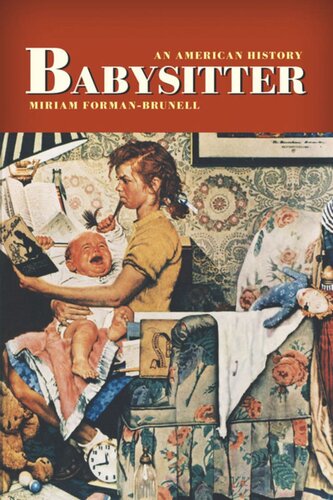

Most ebook files are in PDF format, so you can easily read them using various software such as Foxit Reader or directly on the Google Chrome browser.
Some ebook files are released by publishers in other formats such as .awz, .mobi, .epub, .fb2, etc. You may need to install specific software to read these formats on mobile/PC, such as Calibre.
Please read the tutorial at this link: https://ebookbell.com/faq
We offer FREE conversion to the popular formats you request; however, this may take some time. Therefore, right after payment, please email us, and we will try to provide the service as quickly as possible.
For some exceptional file formats or broken links (if any), please refrain from opening any disputes. Instead, email us first, and we will try to assist within a maximum of 6 hours.
EbookBell Team

0.0
0 reviewsOn Friday nights many parents want to have a little fun together—without the kids. But “getting a sitter”—especially a dependable one—rarely seems trouble-free. Will the kids be safe with “that girl”? It’s a question that discomfited parents have been asking ever since the emergence of the modern American teenage girl nearly a century ago. In Babysitter, Miriam Forman-Brunell brings critical attention to the ubiquitous, yet long-overlooked babysitter in the popular imagination and American history.
Informed by her research on the history of teenage girls’ culture, Forman-Brunell analyzes the babysitter, who has embodied adults’ fundamental apprehensions about girls’ pursuit of autonomy and empowerment. In fact, the grievances go both ways, as girls have been distressed by unsatisfactory working conditions. In her quest to gain a fuller picture of this largely unexamined cultural phenomenon, Forman-Brunell analyzes a wealth of diverse sources, such as The Baby-sitter’s Club book series, horror movies like The Hand That Rocks the Cradle, urban legends, magazines, newspapers, television shows, pornography, and more.
Forman-Brunell shows that beyond the mundane, understandable apprehensions stirred by hiring a caretaker to “mind the children” in one’s own home, babysitters became lightning rods for society’s larger fears about gender and generational change. In the end, experts’ efforts to tame teenage girls with training courses, handbooks, and other texts failed to prevent generations from turning their backs on babysitting.